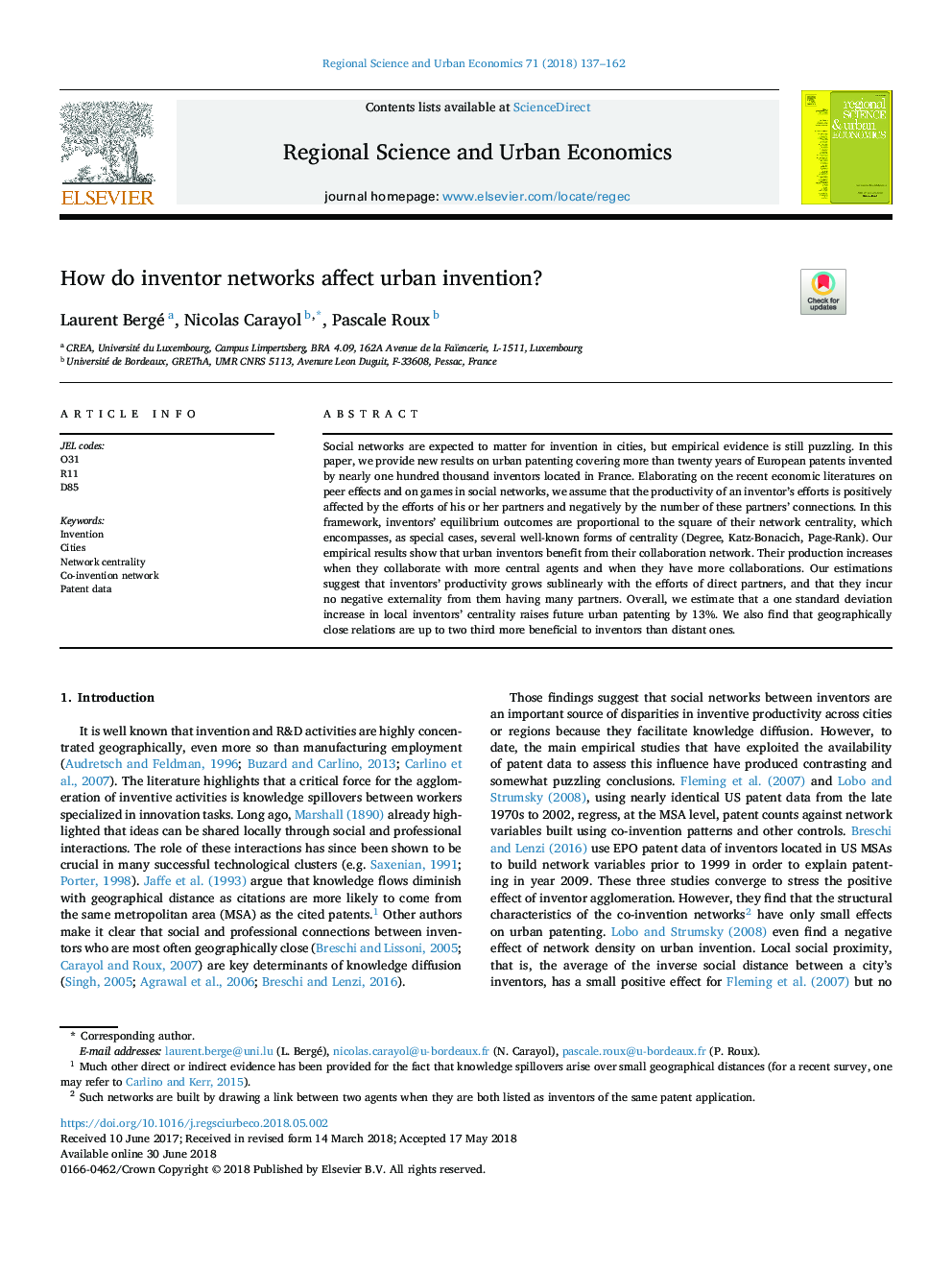| Article ID | Journal | Published Year | Pages | File Type |
|---|---|---|---|---|
| 7383618 | Regional Science and Urban Economics | 2018 | 26 Pages |
Abstract
Social networks are expected to matter for invention in cities, but empirical evidence is still puzzling. In this paper, we provide new results on urban patenting covering more than twenty years of European patents invented by nearly one hundred thousand inventors located in France. Elaborating on the recent economic literatures on peer effects and on games in social networks, we assume that the productivity of an inventor's efforts is positively affected by the efforts of his or her partners and negatively by the number of these partners' connections. In this framework, inventors' equilibrium outcomes are proportional to the square of their network centrality, which encompasses, as special cases, several well-known forms of centrality (Degree, Katz-Bonacich, Page-Rank). Our empirical results show that urban inventors benefit from their collaboration network. Their production increases when they collaborate with more central agents and when they have more collaborations. Our estimations suggest that inventors' productivity grows sublinearly with the efforts of direct partners, and that they incur no negative externality from them having many partners. Overall, we estimate that a one standard deviation increase in local inventors' centrality raises future urban patenting by 13%. We also find that geographically close relations are up to two third more beneficial to inventors than distant ones.
Related Topics
Social Sciences and Humanities
Economics, Econometrics and Finance
Economics and Econometrics
Authors
Laurent Bergé, Nicolas Carayol, Pascale Roux,
